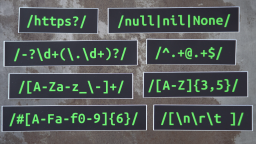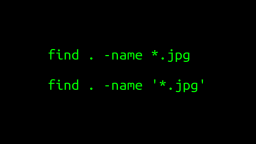Intro To 'nice' Command In Linux
2023-07-19 - By Robert Elder
I use the 'nice' command to change how much CPU time a process gets:
nice date
Thu 20 Jul 2023 10:26:48 AM EDT
Running A Process Without 'nice'
If I run this 'factor' command, it uses a lot of CPU and takes several seconds to finish:
factor 48324798327489321749327483254325354313
48324798327489321749327483254325354313: 3 3 11 23 3618065157073333 5865845715918448993
Running A Process Slower With Lower CPU Priority
I can make sure that the 'factor' command is nice to other process by running it with a 'nice value' of 19:
nice -n 19 factor 48324798327489321749327483254325354313
48324798327489321749327483254325354313: 3 3 11 23 3618065157073333 5865845715918448993
Running A Process Faster With Higher CPU Priority
I can also make the 'factor' command less nice by using a negative niceness value of -20:
sudo nice -n -20 factor 48324798327489321749327483254325354313
48324798327489321749327483254325354313: 3 3 11 23 3618065157073333 5865845715918448993
Demonstrating The Usefulness Of The 'nice' Command
Here, I have a C program that uses lots of CPU and then prints out how much time it's been running:
#include <sys/time.h>
#include <sys/resource.h>
#include <stdio.h>
#include <unistd.h>
int main(int argc, char *argv[]){
struct timeval stop, start;
gettimeofday(&start, NULL);
long long int i = 0;
while(i < 1000000000L){
i++;
}
gettimeofday(&stop, NULL);
int diff_seconds = stop.tv_sec - start.tv_sec;
int diff_useconds = stop.tv_usec - start.tv_usec;
long long int us = diff_seconds * 1000000L + diff_useconds;
double num_seconds = (double)us/(double)1000000;
int pid = getpid();
int priority = getpriority(PRIO_PROCESS, 0);
printf("Finished in %.02f seconds, pid=%d, niceness=%d, i=%s.\n", num_seconds, pid, priority, argv[1]);
}
If I compile this program like this:
gcc my-program.c -o my-program
and use the following wrapper script 'do-random-niceness.sh':
#!/bin/bash
for i in {1..200}; do
NICENESS_TO_USE=$(($RANDOM % 40 - 20))
nice -n $NICENESS_TO_USE ./my-program $i &
done
to launch 200 different instances of it with random niceness values using the following script:
sudo ./do-random-niceness.sh
you can see that the copies of this process that have negative niceness values finish first, while the ones with most positive niceness values tend to finish last:
Finished in 3.47 seconds, pid=38049, niceness=-17, i=5.
Finished in 3.59 seconds, pid=38072, niceness=-20, i=28.
Finished in 4.26 seconds, pid=38112, niceness=-20, i=68.
Finished in 4.68 seconds, pid=38097, niceness=-20, i=53.
Finished in 3.46 seconds, pid=38244, niceness=-19, i=200.
Finished in 6.43 seconds, pid=38077, niceness=-17, i=33.
Finished in 6.56 seconds, pid=38054, niceness=-17, i=10.
Finished in 5.98 seconds, pid=38168, niceness=-17, i=124.
Finished in 6.71 seconds, pid=38152, niceness=-16, i=108.
Finished in 7.51 seconds, pid=38115, niceness=-17, i=71.
...Many Omitted entries...
Finished in 48.21 seconds, pid=38159, niceness=19, i=115.
Finished in 47.74 seconds, pid=38181, niceness=16, i=137.
Finished in 48.07 seconds, pid=38074, niceness=17, i=30.
Finished in 48.28 seconds, pid=38116, niceness=19, i=72.
Finished in 48.47 seconds, pid=38094, niceness=19, i=50.
Finished in 48.83 seconds, pid=38107, niceness=16, i=63.
Finished in 48.45 seconds, pid=38153, niceness=18, i=109.
Finished in 47.22 seconds, pid=38213, niceness=19, i=169.
Finished in 48.18 seconds, pid=38165, niceness=19, i=121.
This is true even though every process is identical and the order in which they were launched doesn't matter.
Default Value
If you run the 'nice' command without arguments, it will print the current niceness value:
nice
0
You can use this feature to find the default 'niceness' value of the 'nice' command itself:
nice nice
10
And that's why the 'nice' command is my favourite Linux command.
 Intro To 'stty' Command In Linux
Published 2023-10-04 |
 Buy Now -> |
 Intro To 'nproc' Command In Linux
Published 2023-07-15 |
 Intro To 'comm' Command In Linux
Published 2023-09-06 |
 How To Force The 'true' Command To Return 'false'
Published 2023-07-09 |
 A Surprisingly Common Mistake Involving Wildcards & The Find Command
Published 2020-01-21 |
 A Guide to Recording 660FPS Video On A $6 Raspberry Pi Camera
Published 2019-08-01 |
 Intro To 'chroot' Command In Linux
Published 2023-06-23 |
| Join My Mailing List Privacy Policy |
Why Bother Subscribing?
|